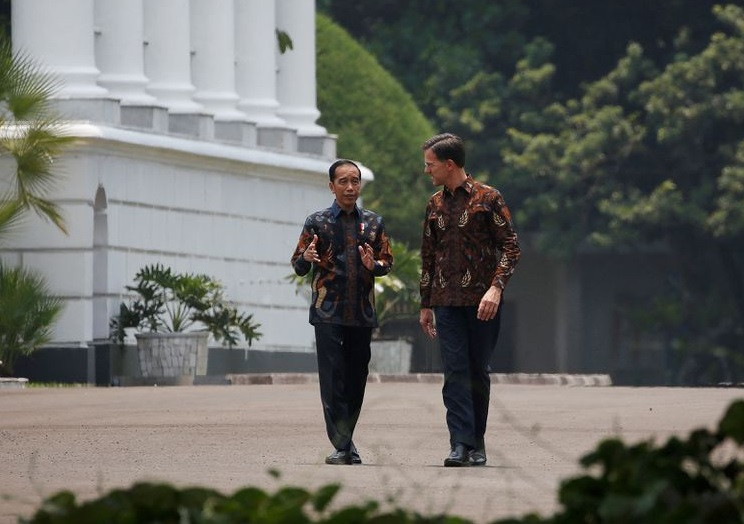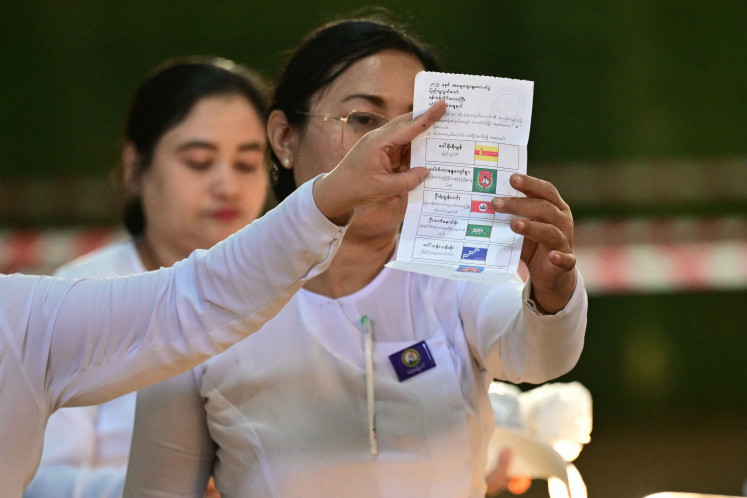Popular Reads
Top Results
Can't find what you're looking for?
View all search resultsPopular Reads
Top Results
Can't find what you're looking for?
View all search resultsWhat a Dutch treat
If the Netherlands is sincere about wanting to know its past, it would do well by revising its colonial history.
Change text size
Gift Premium Articles
to Anyone
T
he Netherlands now accepts that Indonesia, its former colony, gained independence on Aug. 17, 1945, and not Dec. 30, 1949, as it had insisted for the past 74 years.
Prime Minister Mark Rutte announced in Dutch Parliament on June 14 that The Hague “recognizes fully and without reservation” that Indonesia became independent in 1945, and said he planned to consult with Indonesian President Joko “Jokowi” Widodo on how to “reach a joint realization of that independence day.”
Really, Meneer Rutte? Why drag Indonesia into a domestic debate with no business and no interest whatsoever in the outcome? The Dutch recognition is inconsequential to Indonesia nor to its relations with its former colonial ruler.
Indonesia proclaimed independence on that auspicious August day in 1945 and later fought a fierce, bloody war against the Dutch forces trying to reimpose its rule post-World War II. Four years later, Indonesia won the war forcing the Netherlands to transfer sovereignty. Since then, Aug. 17 has always been celebrated as Indonesia’s Independence Day. Nothing the former colonial ruler said or believed would change that.
Accepting defeat and losing its prized colonial possession was obviously a hard pill to swallow. The Netherlands continued to insist that it had handed sovereignty, a gift of sort, to Indonesia. This had been the Dutch official version, until this month.
Getting to this stage for The Hague has been a long political struggle because of fierce opposition, particularly from its war veterans who were sent to fight in Indonesia in the 1940s. They would naturally feel betrayed that the sacrifices they had made were for nothing. With their numbers dwindling, it is becoming easier for the Dutch government to change its position and come up with a narrative about those years closer to reality.
In February last year, Rutte issued an apology to Indonesia for the use of extreme violence during the war in the 1940s, following a government-commissioned study that found atrocities committed by Dutch forces that were never officially reported.
In 2005, the Netherlands accepted “in a political and moral sense” that Indonesia became independent in 1945. Since then, the Dutch royal family has been sending messages of congratulations to Indonesia every Aug. 17, and Dutch officials were allowed to accept invitations to Independence Day celebrations and receptions.
The latest recognition of when Indonesia became independent however sounds disingenuous as it comes with caveats, with Rutte saying that it “would not change any existing legal grounds.” His spokesperson added that The Hague would continue to recognize 1949 as the year of Indonesia’s independence.
Rutte had to do this to shield The Hague from any possible reparation claims. It also spares it from the possibility of facing war crimes charges. Accepting 1945 as Indonesia’s independence could potentially make the Dutch police’s actions in the 1940s as acts of aggression against a sovereign nation in violation of international laws.
As inconsequential as it is, we still welcome The Hague’s gesture as a significant first step for the Netherlands to review its history of colonialism.
The aggression and brutality committed in the war against Indonesia in the 1940s, now officially recognized, is scratching the surface of the ugly reality of the Dutch colonial rule, which includes the hugely profitable slave trade, going back to the 17th century and beyond.
One or two of these are well documented, such as the massacre on Banda Island in 1621. Most others are not, and they are eclipsed by the glorified history of the Netherlands when it was the wealthiest nation on earth in the 18th and 19th century, at the expense of its colonies.
If the Netherlands is sincere about wanting to know its past, it would do well by revising its colonial history. This is really for the Dutch people to decide; Indonesia has never made any claim since we gained independence in 1945.
We, as a great nation, have moved on with our version of history.











